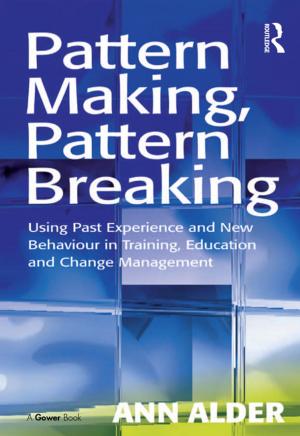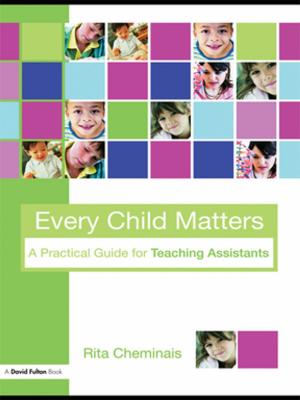School Behaviour and Families
Frameworks for Working Together
Nonfiction, Reference & Language, Education & Teaching, Educational Theory, Philosophy & Social Aspects| Author: | Sue Roffey | ISBN: | 9781134134779 |
| Publisher: | Taylor and Francis | Publication: | October 18, 2013 |
| Imprint: | David Fulton Publishers | Language: | English |
| Author: | Sue Roffey |
| ISBN: | 9781134134779 |
| Publisher: | Taylor and Francis |
| Publication: | October 18, 2013 |
| Imprint: | David Fulton Publishers |
| Language: | English |
This book focuses on the relationship that schools have with parents and carers, especially in the early stages of behavioral difficulty. It aims to promote the best possible partnership with parents in what is often a sensitive and emotionally fraught situation.
It contains an overview of the context and a general theoretical framework for home school interactions on behavior; research findings on factors which facilitate or inhibit effective partnerships, helping teachers understand why some parents/carers are reluctant to become involved or may appear aggressive and suggests ways in which schools might usefully respond; and chapters written by contributors with specific expertise in working with parents who have harmed their children, the carers of children in foster families and residential homes, mobile families (including travelers and asylum seekers), and families from diverse communities.
The book is intended primarily for teachers and school managers at every phase of education, but will also be of interest to educational psychologists, home-school liaison officers, support staff, counselors, mentors, LEA officers and anyone working in parent partnership schemes.
This book focuses on the relationship that schools have with parents and carers, especially in the early stages of behavioral difficulty. It aims to promote the best possible partnership with parents in what is often a sensitive and emotionally fraught situation.
It contains an overview of the context and a general theoretical framework for home school interactions on behavior; research findings on factors which facilitate or inhibit effective partnerships, helping teachers understand why some parents/carers are reluctant to become involved or may appear aggressive and suggests ways in which schools might usefully respond; and chapters written by contributors with specific expertise in working with parents who have harmed their children, the carers of children in foster families and residential homes, mobile families (including travelers and asylum seekers), and families from diverse communities.
The book is intended primarily for teachers and school managers at every phase of education, but will also be of interest to educational psychologists, home-school liaison officers, support staff, counselors, mentors, LEA officers and anyone working in parent partnership schemes.















